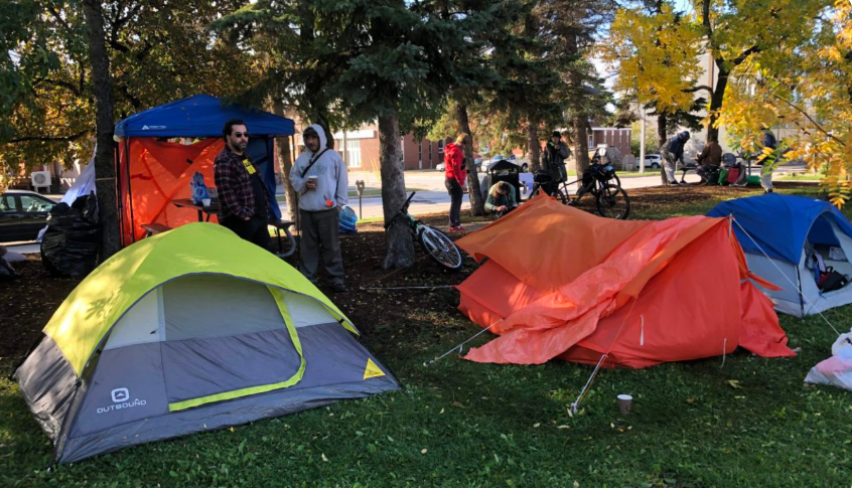Province taking Action to End Encampments

Province taking action to end encampments and crack down on public use of illegal drugs
The Ontario government will introduce legislation today that will, if passed, better protect community safety by providing municipalities and police with new resources and enforcement tools to address the growing problem of homeless encampments and crack down on illegal drug use in parks and public spaces. Ontario is also investing $75.5 million to further support homelessness prevention and provide people living in encampments with access to reasonable alternative accommodation. This is in addition to the province’s ongoing $700 million investment in homelessness prevention programs each year, as well as the $378 million the province is investing in 19 Homelessness and Addiction Recovery Treatment (HART) Hubs.
“Mayors and residents from communities across Ontario have been clear that enough is enough when it comes to encampments and illegal drug use in our parks and public spaces,” said Premier Doug Ford. “Families deserve to enjoy their local parks and playgrounds without fearing for their kids. People facing homelessness or addiction and mental health challenges should be supported in the right settings. The federal government’s approach of legalizing dangerous drugs for use in our communities has failed and it needs to end.”
The province is dedicating $75.5 million for programs that provide more long-term stable housing and temporary accommodations for those living in encampments, including:
- $5.5 million to top up the Canada-Ontario Housing Benefit (COHB) to immediately free-up emergency shelter spaces for people living in encampments by helping people living in shelters move into longer-term housing, building on the nearly $400 million Ontario and the federal government invested in COHB between 2023 and 2024.
- $20 million to expand shelter capacity and create additional temporary accommodation spaces, like tiny modular units and climate-controlled semi-permanent structures, to provide people living in encampments with accessible alternative living options.
- $50 million in funding designated for ready-to-build affordable housing projects across the province. This funding will be allocated based on how close a project is to completion, as well as its value for money, to help projects near completion but in need of targeted additional funding to open their doors faster.
This investment includes $44.5 million in new provincial funding and $31 million from the Canada-Ontario Community Housing Initiative.
Service managers who receive funding will be required to report back to the province on the number of individuals moved from encampments into new accommodations. They will also be required to submit spending plans to the Ministry of Municipal Affairs and Housing for review and approval, to ensure the province's $654 million yearly investment in the Homelessness Prevention Program is being used effectively and in line with the shared provincial and municipal goal of ending encampments by providing safe and stable housing for people at risk of homelessness.
To help clear parks and public spaces of encampments, the Safer Municipalities Act, 2024 includes amendments to the Trespass to Property Act, which applies to private business, offices, stores, hotels, parks and vacant land. These amendments, if passed, will enhance penalties for people who deliberately and continually break the law by adding the new aggravating factors of continuous trespassing and the likelihood to reoffend. In cases where these factors are present, these new tools will be applied by the court during sentencing.
The government is further protecting communities by introducing the Restricting Public Consumption of Illegal Substances Act, 2024 that will, if passed, allow police officers and other provincial offences officers to direct individuals to stop using illegal substances or to leave the public space. This will allow them to issue a ticket or arrest someone who does not comply, providing an important additional tool to stop the consumption of illegal drugs in public spaces. People found guilty of violating this legislation, including those doing so in encampments, could face fines of up to $10,000 or up to six months in prison.
As part of the province’s focus on long-term treatment and recovery, the government is exploring new judicial approaches that provide the option of rehabilitation as an alternative to incarceration in the event of minor or non-violent drug crimes.
